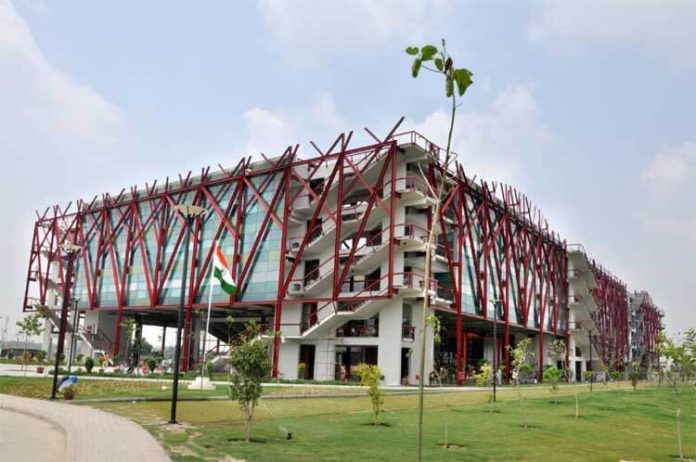Jindal Law School ranked No.1 in India, among the top in the world, by QS Survey
The Britain-based education information firm Quacquarelli Symonds (QS) has ranked the Jindal Global Law School (JGLS) of O.P. Jindal Global University in Sonipat, Haryana the No. 1 law school in India. Along with JGLS the National Law School of India University (NLSIU), Bengaluru, has also been ranked in the QS World University Subject Rankings 2020. JGLS has been ranked in the 101-150 band amongst the world’s top law schools while NLSIU is in the QS 151-200 band. Criteria on which the universities were ranked include academic reputation, employer reputation, H-Index and citations per paper.
QS Subject Ranking in Law measures the global relevance of institutions specifically in the area of research in law along with combining reputation among the academic community and employers. Out of 894 law schools shortlisted only 300 were ranked by QS.
Patna High Court dismisses petition by CNLU student
A final-year student of the Chanakya National Law University (CNLU), Patna, filed a writ petition in the Patna High Court challenging an advertisement by the Bihar Public Service Commission for the post of assistant prosecution officer. The advertisement by BPSC inviting applications for the post said that only law graduates on the date of application were eligible to apply. However, the petitioners, who are final-year law students and would be graduates on the date of appointment, wanted to apply for the post.
The last date for application for the post was March 6 and the petitioners are due to take their final exams in April. Justice Madhuresh Prasad passed an order dismissing the writ petition and observed that “the petitioners have no enforceable claim as it is the admitted position that they have yet to obtain their qualification as Law Graduates”.
Environmental conclave at HPNLU
Himachal Pradesh National Law University (HPNLU), Shimla, is hosting an environment conclave on June 5, 2020. The Centre for Environmental and Disaster Management of HPLNU is organising the one-day student conclave to bring together several eminent personalities in the field of environment law to give valuable insights to the young students who will put forth different perspectives and pertinent questions relating to contemporary issues in environmental law.
HPNLU has invited students enrolled in undergraduate and post-graduate programmes in any recognised institution across India. Students interested in submitting their papers should submit their original and un-published work on relevant topics by April 25.
First national client counseling competition at Amity
Amity University Maharashtra, Mumbai is hosting its first national client counselling and drafting competition from April 17 to 19. The competition is open to all students pursuing the LLB three year/ five year courses during the current academic year. Themes will be based on the laws related to domestic violence, land laws, contracts, copyright and law of tort. Participating teams can win cash prizes worth Rs 25000 with a one-month internship and free publication online. Last date to register is March 29.
NLUO invites papers for law journal special issue
The special edition of the law journal of National Law University Odisha (NLUO) on the theme of Election Laws aims to foster discussion on legal issues related to elections. This volume aims to extend its scope beyond the status quo, looking into the future of elections in India in a world of breakneck social, legal, political and technological development.
Submissions can be in the form of long articles, short notes, book reviews. The article/note/case-comment/book review may focus on any contemporary topic relating to election laws such as–representation of Anglo Indians in Parliament, post-poll alliances and constitutionality, election manifesto, electoral bonds and political funding, NOTA and its contemporary relevance, electoral justice and participation of under-represented groups, regulating election campaigning on social media/online platforms, application and analysis of the model code of conduct, transparency, disclosure of assets and nominations, electronic voting machines, role of civil society in electoral process and so on.
—Compiled by Nupur Dogra


